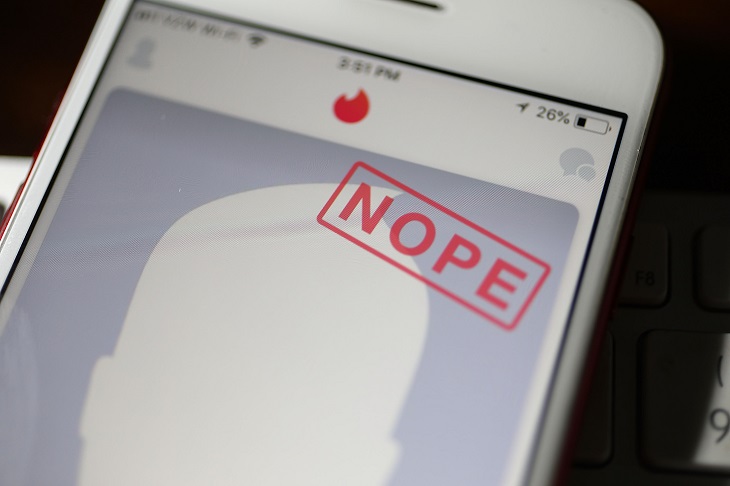Just when you thought the all-pervasive power of the State could not get any more intrusive, governments have begun manipulating people’s dating habits.
Governments – from Japan to Iran – are using technology to play Cupid for citizens in a bid to lift falling birth rates.
The idea sounds noble enough – as most totalitarian ideas do – right up until the State ‘swipes left’ on your freedoms.
In a world where people’s lives are increasingly lived online, governments have never met an algorithm they could resist. And so, worried about declining populations, bureaucrats have begun manipulating dating site data to nudge their unproductive populace in the direction of love.
But if three is a crowd, what is a couple chaperoned by the State?
Last year, the Japanese government invested $19 million in matchmaking AI to arrest the nation’s demographic spiral.
Japan’s population is expected to fall from a peak of 128 million people in 2017 to less than 53 million by the turn of the century. In other words, the land of the rising sun – with a birth rate of 1.36 – will soon experience sunset if people don’t start pairing up.
Instead of addressing economic barriers to marriage and having children, the Japanese government has decided to pay for sophisticated AI to help matchmakers couple people according to their hobbies and, interestingly, their values.
Now, wouldn’t it be a shame if people with the ‘wrong’ values just never met or matched with a mate…?
Not to be outdone, the famously repressive Islamic Republic of Iran has launched a matchmaking app to encourage reluctant singles to connect. As third wheels go, Supreme Leader Ayatollah Ali Khamenei is a doozy.
Hamdam (or Companion), is the only officially licensed dating app for Iranians wanting a relationship, and it caters strictly for those who agree to seek a relationship in accordance with Islamic law.
Now, wouldn’t it be a pity if non-Muslims living in Iran struggled to meet, or marry, or have children…?
Closer to home, it is not difficult to imagine dating sites being manipulated to ensure wrong think does not reproduce – a kind of ‘big tech’ eugenics.
Tinder recently boasted that its users increasingly ‘advocated for vaccine status as a dating essential’.
And true enough, a cursory scan of Tinder profiles reveals a majority of people now advertise their vaccination status. Or maybe they don’t. Maybe the algorithms just favour the vaccinated so that the unvaccinated never find matches.
That so many Tinder users advertise they’ve had the jab is not coincidental. You cannot create a Tinder profile without being repeatedly prompted to indicate that you are ‘vaccinated’ or that you intend to be ‘vaxing soon’.
Funnily enough, members are not asked if they want to advise potential partners that they have naturally acquired immunity.
Tinder tells users: ‘Add a sticker to your profile to show your support for the Covid vaccine. The vaccination sticker is self-reported and not independently verified by Tinder. We can’t guarantee that a member is vaccinated or can’t transmit the virus.’
So, by their own admission, the sticker has nothing to do with protecting users’ health and everything to do with promoting people’s views, with only one view on offer.
And over a 24-hour period, a profile advertising support for vaccination was ‘liked’ ten times as much as an identical profile that did not.
Coincidence? Maybe.
Perhaps people are very concerned about vaccination? Or perhaps people very concerned about vaccination are the one’s Cupid favours…
It’s not hard to imagine how finding Mr Right will end up as finding Mr Right Thinking, especially if he is the only man allowed to exist.
You can follow James on Twitter. You can order his new book Notes from Woketopia here.
Got something to add? Join the discussion and comment below.
Get 10 issues for just $10
Subscribe to The Spectator Australia today for the next 10 magazine issues, plus full online access, for just $10.

























Comments
Don't miss out
Join the conversation with other Spectator Australia readers. Subscribe to leave a comment.
SUBSCRIBEAlready a subscriber? Log in